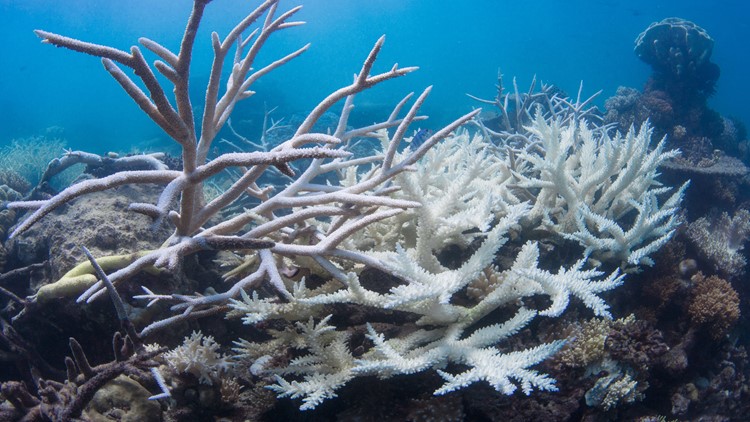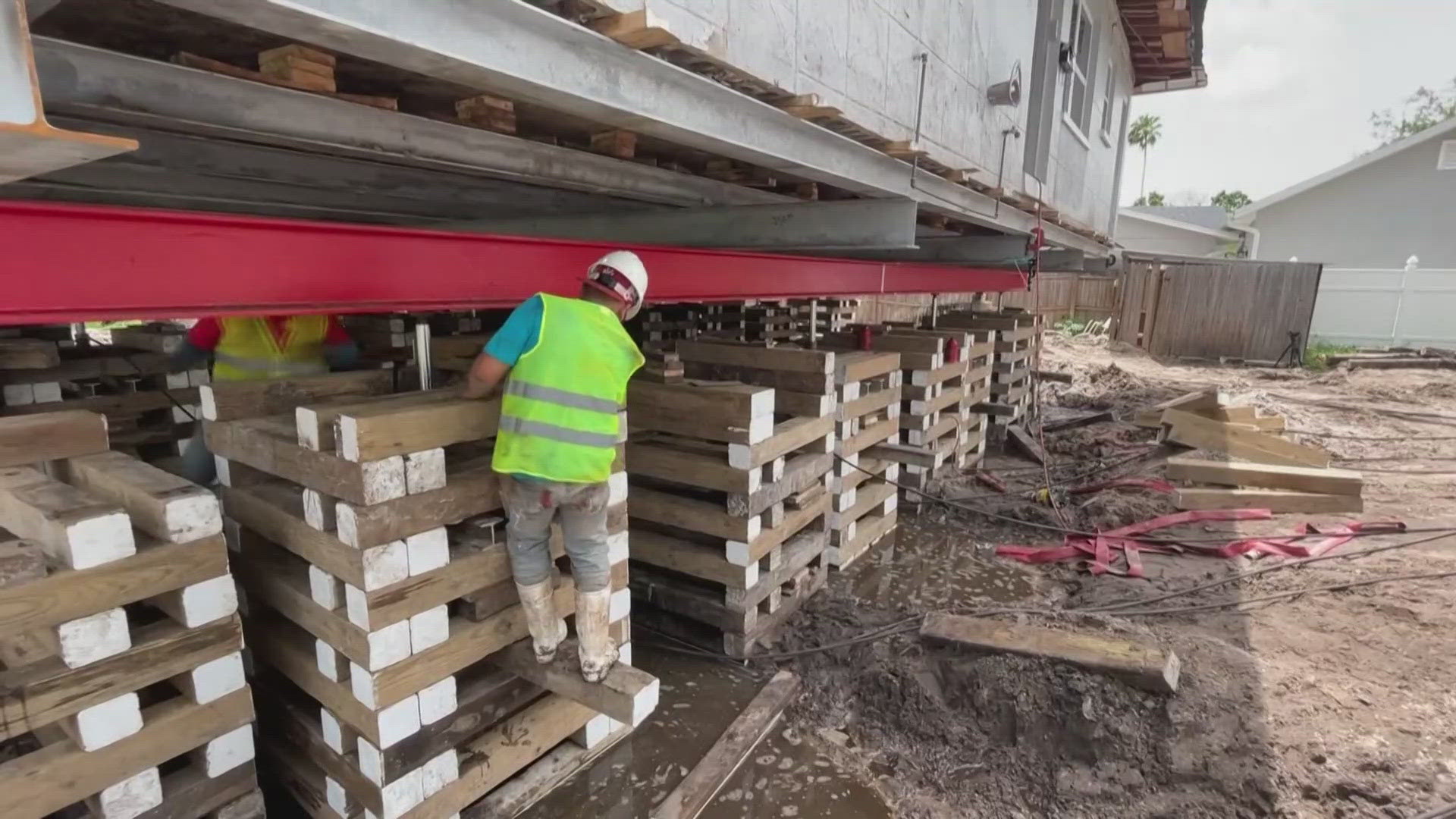FLORIDA, USA — While Florida is full of beautiful beaches, some people may not know what exactly is happening underneath the water.
The Miami Herald reports coral reefs found around Florida are experiencing the "first widespread, mass bleaching event" in seven years, according to National Oceanic and Atmospheric Administration’s Coral Reef Watch Coordinator Derek Manzello.
“There is a confirmed, widespread bleaching event taking place from the Dry Tortugas in the Florida Keys, all the way up to Martin County,” he said to the media outlet. “This is at least the eighth mass bleaching event that has impacted the entire Florida Keys since 1987.”
The reefs in the Sunshine State stretch almost 350 miles from the Dry Tortugas to the St. Lucie Inlet, Florida's Coral Reef explains. It's the only coral reef system in the U.S. and is "home to over 40 species of reef-building corals that provide shelter, food and breeding sites for millions of plants and animals."
The website says coral bleaching happens when corals are stressed by changes in their conditions and they "expel colorful algae living in their translucent tissues" which ended us showing their white skeleton.
And what adds to the threat toward the reefs? According to Florida's Coral Reef, factors like Stony Coral Tissue Loss Disease, pollution, warming ocean temperatures and ocean acidification contribute.
The Florida Department of Environmental Protection is working daily with partners to support the reefs' natural recovery processes.
Closer to home, the University of South Florida was awarded a $20 million federal grant back in September to protect coral reef and mangrove ecosystems.
The award allows researchers to "develop a standardized approach to the protection and replenishment of coral reef and mangrove ecosystems, which serve as a barrier in protecting our coasts."
“Coral reefs and mangroves protect coastal communities, provide numerous ecosystem services and support local livelihoods. By working with communities to better understand and value these ecosystems, we will develop more equitable approaches to protecting and restoring them,” Civil and Environmental Engineering Professor Maya Trotz said in a statement. “Not only will this project address the environmental questions of our time, it will also provide advice on how ordinary people everywhere can participate in finding solutions to our coastal crisis.”
For anyone wanting to take action to help conserve the reefs, you can click here to take a pledge and join the Florida Coral Crew.



